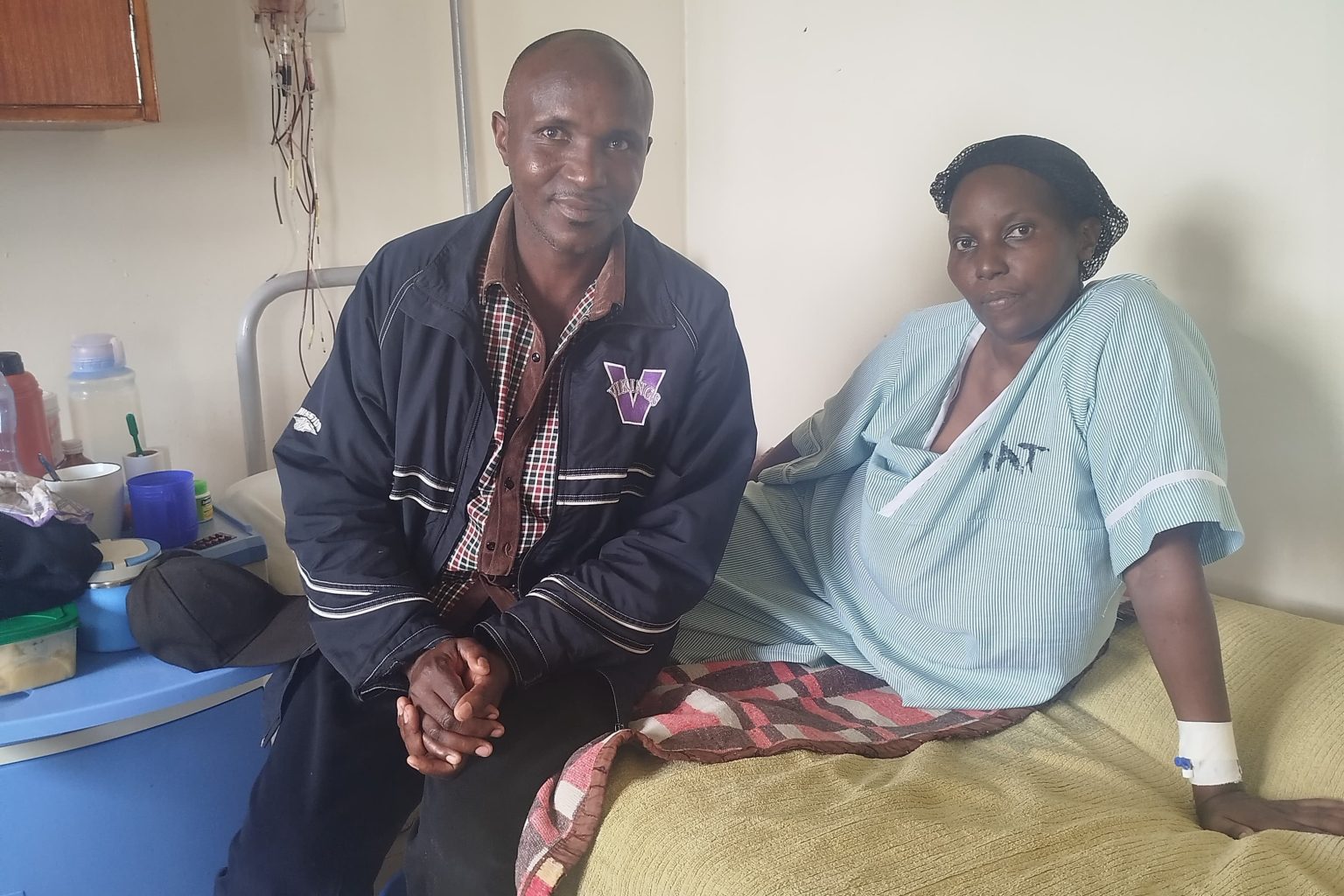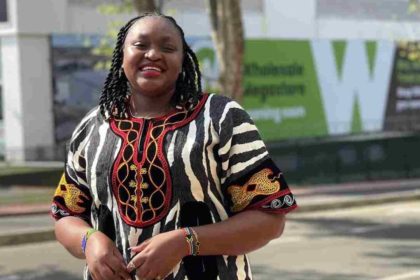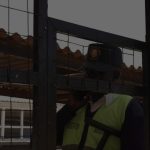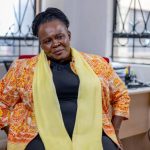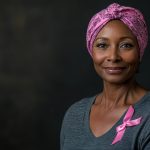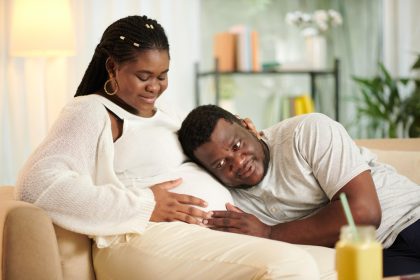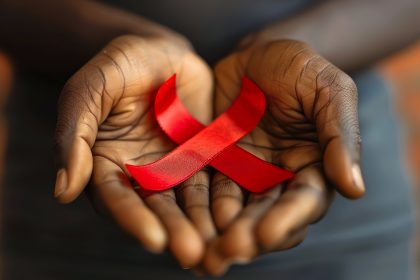In Kenya, caregivers bear illness’s quiet weight—unseen, unsupported. Women are expected to care; men are shamed if they do. Yet some defy tradition, proving caregiving isn’t just medicine—it’s the quiet power of presence
When Rehoboam Vidolo and Margaret Abukutsa married in December 2005, they expected a happy life together. They didn’t think health problems would test their wedding vows of “for better, for worse, in sickness and in health.”
In Naivasha, Margaret shared her health struggles with a warm smile. “We wanted our first year of marriage to be a honeymoon. We had no hurry getting babies. But when the second year passed without me conceiving despite not using family planning, we got worried,” Margaret explained about their many hospital visits.
Not being able to have a baby brought social pressure, with family and friends constantly asking when they would have children. Margaret remembered a doctor once mentioning she might have hormonal problems, years before marriage.
“Milk was leaking from my breasts yet I was not pregnant. I didn’t know the problem would escalate,” Margaret, who works at KenGen, said.
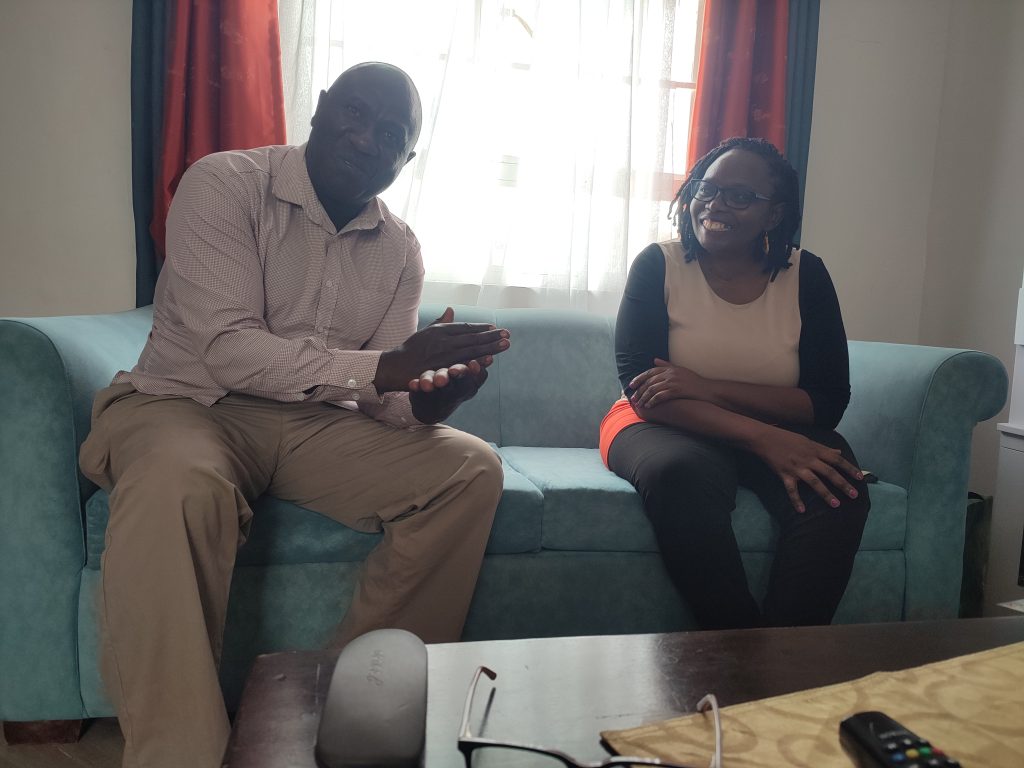
As they looked for answers, Margaret developed other symptoms like partial blindness, trouble sleeping, and head numbness.
“I realised she struggled to sleep and spent most nights tossing and turning. The snoring gradually became intense,” Reho, as she fondly calls her hubby, added.
During a hospital visit, doctors found a tumour in her head but couldn’t explain more, leaving the couple worried.
Relief came when Margaret got a job at Moi University with good medical coverage for specialised treatment. She saw Dr Florentius Koech, a neurosurgeon, who ordered an MRI, revealing a non-cancerous tumour.
Margaret had Prolactinoma, a benign pituitary gland tumour that makes too much prolactin hormone. While not life-threatening, it causes low sex hormone levels, vision problems, and infertility.
“The journey of my husband becoming my caregiver began here. We were together when the prolactinoma diagnosis was made and doctors prescribed drugs to shrink the tumour,” Margaret recalled.
Just when they thought things would improve, Margaret experienced terrible side effects from her medication. The symptoms and side effects affected her greatly, and her caregiver had to manage without any preparation.
She gained weight, had an increased appetite, slurred speech, and memory loss. For Reho, her mood swings were the biggest challenge.
“I never understood how one moment she’s excited and the next minute in a bad mood, quarrelling over small things like a notebook. I had to spend more time close to her and manage her in public,” Reho said.
Even with medication, her symptoms didn’t improve. Sometimes the tumour would press on her optic nerves, affecting her vision. Reho had to guide her and clean her when she vomited.
“Some people suggested questionable alternatives, even proposing we seek treatment in Loliondo, Tanzania, for Babu Mwasapile’s concoction. When desperate, we get vulnerable, but I strongly believed God would answer my prayers through doctors,” Reho explained.
In June 2009, Spanish doctors at a medical camp confirmed the tumour hadn’t shrunk. They assured her it could be removed through her nasal cavity.
“Two days later, I was booked for the quick procedure we hadn’t foreseen. I was wheeled to surgery on short notice. Reho was very worried,” Margaret remembered.
The couple had stopped sharing their challenges with others, especially relatives, because of discouraging advice, so only Reho and his pastor knew about the surgery, after which Reho became her full-time caregiver.
Hospitals back then weren’t accommodating to caregivers. “Things have changed today. Then, caregivers could be chased from hospital wards at any time. Hospital staff mishandled caregivers and overlooked their importance,” recalled Reho, who cared for his wife for two nights after surgery until his sister-in-law relieved him. Not having a job then was fortunate timing.
“We were fortunate I had quit my job and could flexibly care for my wife now that children hadn’t come. It’s unfortunate others have to resign to care for loved ones,” he explained.
After discharge, Reho followed all medical instructions carefully. “I would buy groceries and vegetables for her diet. This led to whispers about my masculinity. Even church friends wanted me to take my wife to her mother’s place for care,” he recalled.
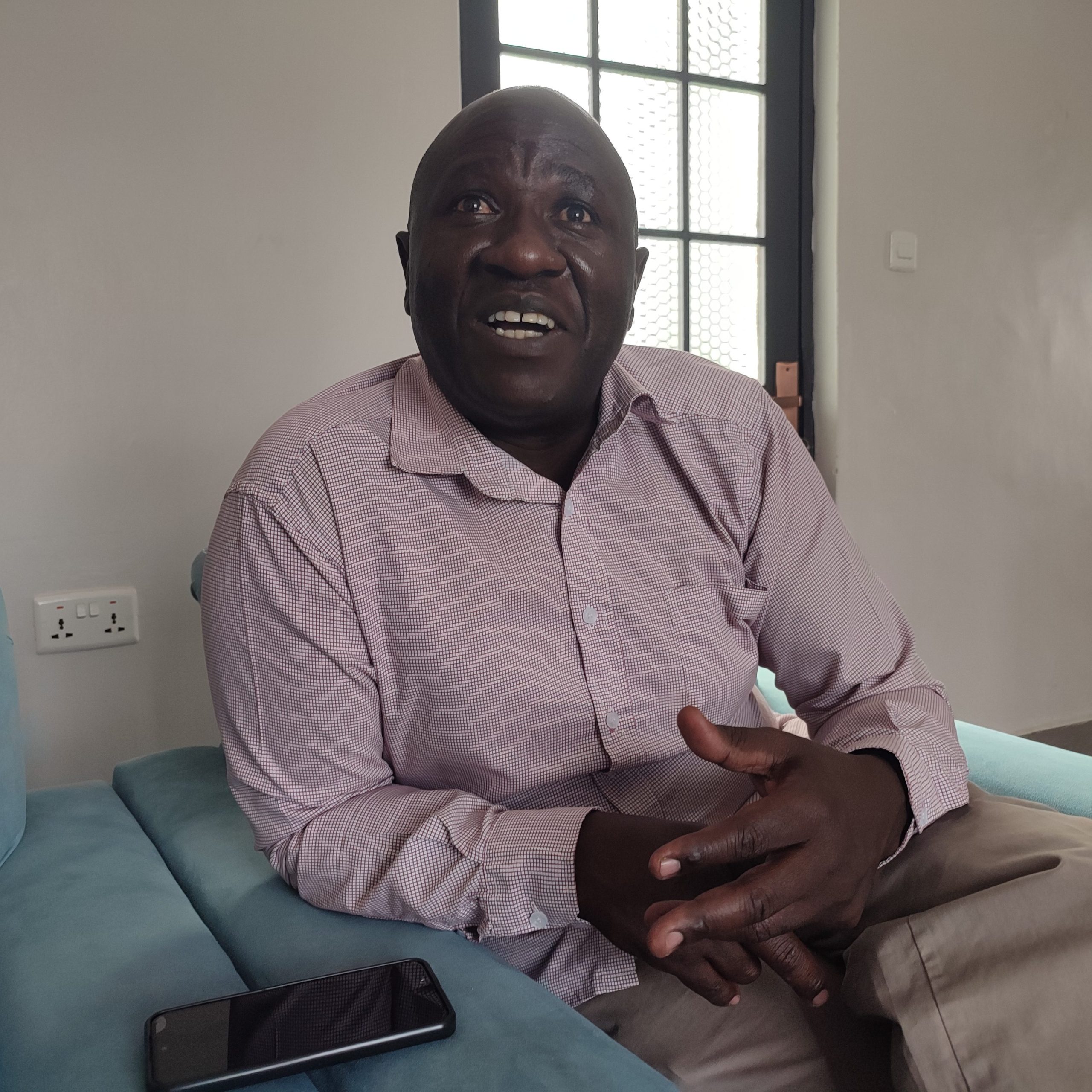
After recovery, they had their first daughter, Diamond, after five years of waiting, and their second daughter, Jewel, a year later.
“We named our daughter Diamond based on the precious mineral’s characteristics. Like a diamond, we got her under high life pressure and after a long time,” Reho explained.
In 2014, Margaret’s symptoms returned as her prolactin levels increased. They consulted Indian doctors who recommended another surgery. In June 2015, they travelled to India, leaving their daughters behind.
“I needed a caregiver to accompany me. We flew to India, leaving our two daughters, because my husband was the only caregiver I trusted. In India, conditions were favourable as they had a bed for the caregiver,” Margaret said.
The couple rushed to get travel documents as Margaret was too weak to handle the process. A kind immigration officer in Kisumu processed their passports in one day.
In India, Margaret had successful stereotactic surgery targeting the tumour. “The Kenyan doctor sent a referral email, and Yashoda Hospital in Hyderabad took over,” Reho explained.
They were met at the airport and helped with currency exchange. The hospital provided food for both Margaret and Reho during their stay.
After surgery and recovery, they moved to an apartment with hospital facilities nearby, only visiting for doctor reviews and emergencies. This reduced costs without compromising care.
“Away from home, he was strong as a caregiver. When sick and missing emotional support, it’s easy to lose yourself. You need someone strong through this unfamiliar journey,” Margaret said.
“Emotional support is critical. Blood relatives provide relief because there’s nothing to hide from them. You know their temperament and can navigate through,” Margaret added.
She noted this isn’t guaranteed with strangers or distant relatives as caregivers.
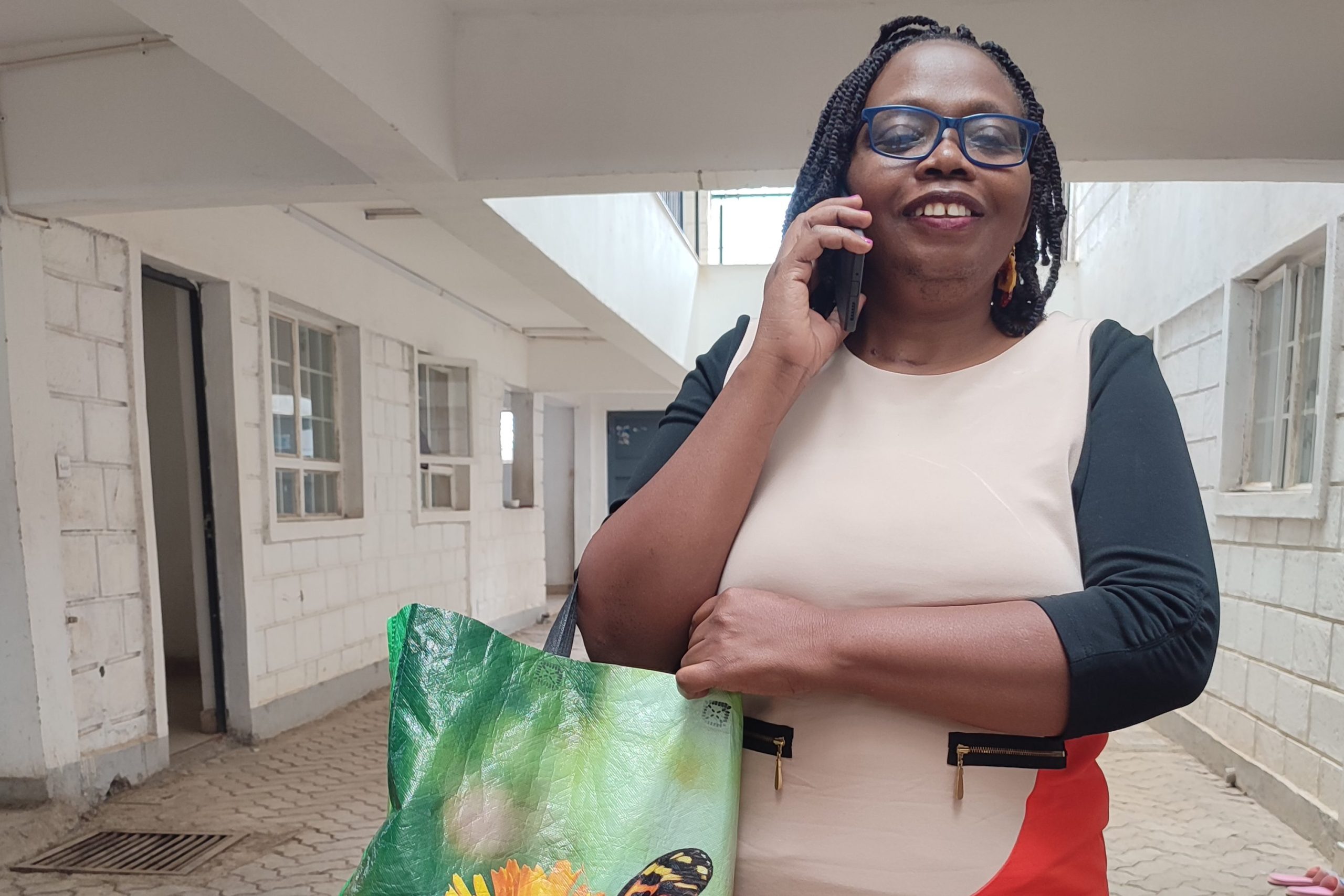
“With strangers, you don’t know their character, and simple tasks like feeding a patient could be difficult. Patients at their lowest might interpret this as being unwanted. Having someone close is therapeutic,” she continued.
Margaret believes assurance from a trusted caregiver helps recovery. “You may be incompatible with a stranger. It needs trust because some non-relative caregivers are excellent, and some relatives are unlikeable to patients,” she explained.
These feelings echo what Rose Maina, a nurse and palliative caregiver at Eldoret Hospice, believes. Maina says a caregiver should be someone patients themselves choose, not necessarily a blood relative.
“Patients are emotionally down when receiving diagnosis reports. Even then, they have the right to choose who they can be open and vulnerable with,” she explained.
Reho told Willow Health that his decision to care for his wife faced cultural opposition that he ignored.
“In the African setup, when a wife becomes ill, she should be cared for by her biological family. It would be convenient to send my wife to her mom’s place since her two sisters were there, but I never wanted to shirk my responsibilities as a husband,” he said.
He credited his commitment to their marriage vows. “I didn’t marry to please others. Some thought that a man caring for his wife made me less masculine. It’s un-African because generally, mothers and women care for the sick. I used to think all nurses were women,” Reho added.
Reho’s parents reminded him that he and his wife were one, which kept him going despite friends suggesting he send his wife to her mother.
“I wanted to model being there for my wife as our vows stated, ‘in good and bad times, in sickness and health’,” he said.
Margaret explained that her husband’s presence gave her strength. “When I was in pain, he was in pain too. In 2022, travelling to India for another procedure, he forgot his yellow card. We nearly missed the flight. He asked that we hold hands and pray, then went to immigration to explain we were going for treatment, not vacation. I saw someone ready to die for me,” Margaret recalled.
She believes her husband’s support was crucial to her healing. “Personally, 80% or even 90% of healing comes from support. He reminds me of having a strong pillar. This pillar isn’t about money, but a virtue money and fame can’t buy. God created him to support me when needed,” Margaret continued.
She remembered worrying her husband might leave because they couldn’t have children and acknowledged she would have suffered alone.
“People imagine if I can’t have a child, he might remarry. It wasn’t strange to think he would leave. When planning a marriage, you don’t know what’s ahead. The vows aren’t just words—everything will be tested. When tests come, will you withstand?” she advised.
In Meru County, Patrick Meeme is another devoted caregiver for his wife, Nancy Mugure, who was diagnosed with cervical cancer six years ago. He was preparing to visit her at Consolata Nkubu Hospital, where she was receiving a blood transfusion.
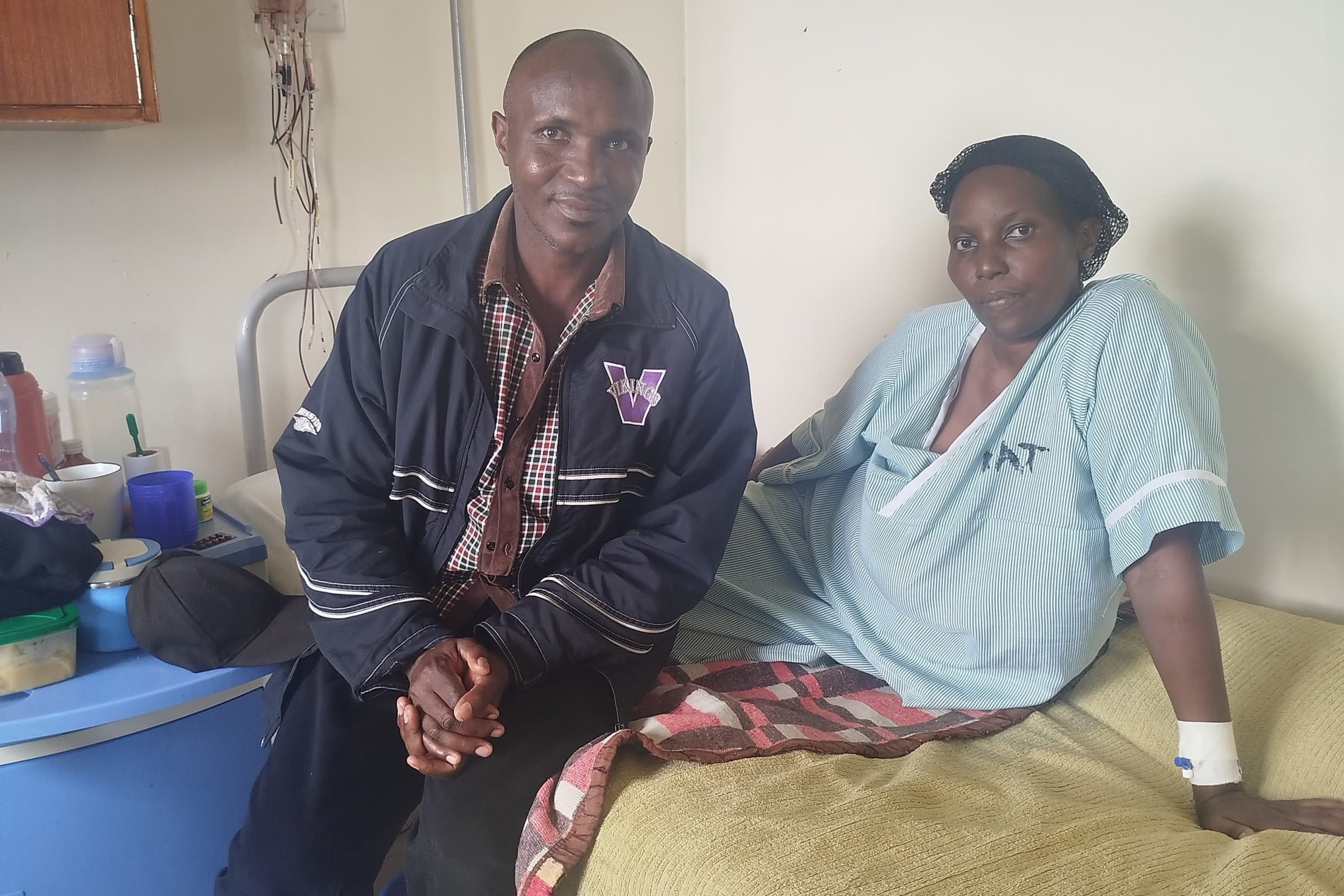
At the hospital, Mugure smiled on seeing her husband. Despite her condition, she showed remarkable strength and no visible pain.
“I’m here for a blood transfusion because my haemoglobin was low. I have stage 4 cervical cancer. My last chemotherapy caused a fistula leading to urinary incontinence, so I wear diapers daily. Doctors advised against surgery to fix it, saying it would cause more complications. I’ve accepted the diaper situation—it doesn’t bother me anymore,” she explained.
She described how treatment costs drain finances. “The last chemotherapy cost about Ksh 168,000. NHIF covered Ksh100,000, and we found the rest. God is faithful; somehow, money was always there when needed,” she said, urging the government to help cancer patients financially.
Like Margaret, Mugure emphasised the importance of emotional support, which few patients receive despite its importance for recovery.
“Without people offering emotional support, recovery becomes harder. There are low days when you need supportive people around you. I thank God for my husband. Since my 2019 diagnosis, he’s never tired of helping me. This love and support speed up healing. Sometimes pain overwhelms me, but thinking of those around me gives me the will to keep fighting,” Mugure shared.
She said her husband and friends’ support sustained her despite challenges with finances. “With a good support system, you focus on yourself, speeding healing. God is with me. People assume you only need financial help, but emotional support is equally important. My friends now form a Godly network, giving me strength to fight daily,” Mugure observed.
She remembered a doctor telling her to stop treatment, go home, and spend time with relatives while awaiting death. This made her fight harder, with her support system encouraging her daily.
Julius Barasa, an AMPATH psychologist and mental health program manager at MTRH, observes that while cultural norms still assign caregiving primarily to women, a quiet revolution is underway. ”There’s a gradual shift where men are taking up caregiving roles, especially for close relatives like parents and spouses,” he notes.
The reality of chronic illness care, Barasa explains, creates difficult choices: ”Daily caregiving becomes a full-time job that derails careers—so families often delegate it to less-educated relatives, typically women.” This systemic pattern traps many in cycles of limited opportunity.
The emotional toll cuts both ways. ”Patients in pain blame caregivers for hospital delays,” Barasa describes, ”while caregivers feel unjustly accused over situations they can’t control.” These tensions reveal the invisible strain of Kenya’s unpaid care economy, where love and obligation collide with limited support.



